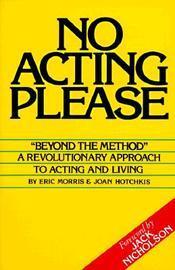Arnon Grunberg's Blog, page 460
December 1, 2012
Cycle

Immortality
In Saturday’s Herald Tribune Nathaniel Rich writes about jellyfish and immortality:
'After more than 4,000 years — almost since the dawn of recorded time, when Utnapishtim told Gilgamesh that the secret to immortality lay in a coral found on the ocean floor — man finally discovered eternal life in 1988. He found it, in fact, on the ocean floor. The discovery was made unwittingly by Christian Sommer, a German marine-biology student in his early 20s. He was spending the summer in Rapallo, a small city on the Italian Riviera, where exactly one century earlier Friedrich Nietzsche conceived “Thus Spoke Zarathustra”: “Everything goes, everything comes back; eternally rolls the wheel of being. Everything dies, everything blossoms again...”
Sommer was conducting research on hydrozoans, small invertebrates that, depending on their stage in the life cycle, resemble either a jellyfish or a soft coral. Every morning, Sommer went snorkeling in the turquoise water off the cliffs of Portofino. He scanned the ocean floor for hydrozoans, gathering them with plankton nets. Among the hundreds of organisms he collected was a tiny, relatively obscure species known to biologists as Turritopsis dohrnii. Today it is more commonly known as the immortal jellyfish.
Sommer kept his hydrozoans in petri dishes and observed their reproduction habits. After several days he noticed that his Turritopsis dohrnii was behaving in a very peculiar manner, for which he could hypothesize no earthly explanation. Plainly speaking, it refused to die. It appeared to age in reverse, growing younger and younger until it reached its earliest stage of development, at which point it began its life cycle anew.
Sommer was baffled by this development but didn’t immediately grasp its significance. (It was nearly a decade before the word “immortal” was first used to describe the species.) But several biologists in Genoa, fascinated by Sommer’s finding, continued to study the species, and in 1996 they published a paper called “Reversing the Life Cycle.” The scientists described how the species — at any stage of its development — could transform itself back to a polyp, the organism’s earliest stage of life, “thus escaping death and achieving potential immortality.” This finding appeared to debunk the most fundamental law of the natural world — you are born, and then you die.’
(…)
‘On my last morning in Shirahama, Kubota called to cancel our final meeting. He had a bacterial infection in his eye and couldn’t see clearly enough to look through his microscope. He was going to a specialist. He apologized repeatedly.
“Human beings very weak,” he said. “Bacteria very strong. I want to be immortal!” He laughed his hearty laugh.’
(Read the complete article here.)
As a friend and a chemist told me while ago: humans consist for a large part of bacteria. Probably we are mainly vehicles for bacteria.
It’s possible that we are immortal, at least partly, it’s just a bacterium or two inside us that is immortal.
One day we will be able to get to know this bacterium and say hello to our little immortality.

November 30, 2012
Kafka

Punishment
Tonight, Friday evening, was the launch of the Dutch translation of Michael March’s poetry collection “Half Pint”.
It was a wonderful evening.
In this collection, published in the Netherlands by De Contrabas, March quotes Kafka: “Sex is the punishment for love.”
I wonder where Kafka wrote this, I assume in one of his letters.
Kafka is right. It’s sad that so many people believe that sex is the reward for love or tenderness, while obviously it’s the punishment.
But we did learn to enjoy our punishment, at least some of us.

November 29, 2012
Spring rolls etcetera

Meeting
Almost two years ago I founded a non-profit organization to subsidize literature in translation and to help children enhance their linguistic abilities.
(Read this entry here about the foundation.)
This evening member of the board came to my hotel for the quarterly meeting. There were snacks (sandwiches, spring rolls etcetera) and after the meeting we did a few exercises I remembered from the days that I tried to get into acting school in Amsterdam.
These board meetings – they are hilarious.
As one of the members of the board said: “One day, we will all be in Arnon’s new novel.”

November 28, 2012
Coach

Questions
From the Learning Network, Teaching and Learning with The New York Times
‘Have you ever tried to change something significant about yourself, whether a personality trait, a bad habit or another aspect of your life? Did it work? Have you ever tried to get someone else to change? What happened? How much, in general, do you believe people can change? Why?
In a piece called “How People Change,” the Op-Ed columnist David Brooks quotes a now-famous e-mail sent by Harry Crews, a disappointed British father, to his three grown children.
Mr. Crews notes his children’s failed marriages and lack of careers and writes, “It is obvious that none of you has the faintest notion of the bitter disappointment each of you has in your own way dished out to us.” He finishes his e-mail with “I want to hear no more from any of you until, if you feel inclined, you have a success or an achievement or a REALISTIC plan … to tell me about.”
Mr. Brooks then writes:
That e-mail, released by one of his daughters hoping to get publicity for a book she is translating, has made Crews a hugely popular folk hero in Britain. Many parents are apparently delighted that someone finally had the gumption to give at least one set of overprivileged slackers a well-deserved kick in the pants.
The problem, of course, is that no matter how emotionally satisfying these tirades may be, they don’t really work. You can tell people that they are fat and that they shouldn’t eat more French fries, but that doesn’t mean they will stop. You can make all sorts of New Year’s resolutions, earnestly deciding to behave better, but that doesn’t mean you will.
People don’t behave badly because they lack information about their shortcomings. They behave badly because they’ve fallen into patterns of destructive behavior from which they’re unable to escape.
Human behavior flows from hidden springs and calls for constant and crafty prodding more than blunt hectoring. The way to get someone out of a negative cascade is not with a ferocious e-mail trying to attack their bad behavior. It’s to go on offense and try to maximize some alternative good behavior. There’s a trove of research suggesting that it’s best to tackle negative behaviors obliquely, by redirecting attention toward different, positive ones.
It’s foolish to imperiously withdraw and say, come back to me when you have a plan. It’s better to pick one area of life at a time (most people don’t have the willpower to change their whole lives all at once) and help a person lay down a pre-emptive set of concrete rules and rewards. Pick out a small goal and lay out measurable steps toward it.
Students: Tell us …
How much in general do you think people can change?
What examples, from your own life or the lives of others, can you offer to support your point of view?
What do you think are the best ways to help others change?
Do you agree with Mr. Brooks that attacking bad behavior doesn’t work? Why or why not?
Are there things about yourself you would like to change? What “measurable steps” might you take toward it?’
(Read the blog entry by Katherine Schulten here.)
I’m a bit surprised that a social conservative like Mr. Brooks claims that attacking bad behavior doesn’t work.
I guess the issue is not so much about change, as well about following certain rules that society wants us to follow.
Perhaps every citizen should be provided with a coach.
But above all I’d like to add the following questions:
Do you think people can change with the help of literature?
Do you think that this change is always a positive change?
Is the freedom to ruin your life a human right?
How much destructive behavior should an average citizen be allowed? (Please,make a list, for example: Getting completely drunk. Once a month. Being unfaithful to my spouse. Twice a month.)
Do you think that people can change because of reading philosophy?
Do you think that this change will always be a positive change?
Should citizens without children be allowed to be more self-destructive than parents with young children?
Give ten examples of self-destructive behavior.
Is it possible to be self-destructive and happy at the same time? Please, explain.

November 27, 2012
Indigestible

Keep trying
Mark Kingwell in Harper’s Magazine on education, philosophy and seduction:
“2. How can philosophers compel the public to reflect on culture?
Compel is such an awesome punchy word! Alas, I don’t think you can ever compel reflection—would that we philosophers had that kind of power. No, the actual process of reflection, whether on one’s culture or on one’s deeper place in the world, has to be motivated from within. But we don’t have to sit still and do nothing. From Socrates onward, it has been obvious that one way to prompt thought is by being irritating and indigestible. The Greek-root word xenocyst captures what I mean: it refers to the lump of foreign matter that enters a complacent system and induces a kind of internal instability. We might think of the abrasive grain of sand that slips inside an oyster’s shell. In attempting to stabilize itself, the oyster creates something new and beautiful out of what as before only annoying.
A linked idea goes to the Latin roots of the word educate, which means to lead out or bring up. Without subscribing to the Socratic notion that we already contain all ideas within us and just need the artful extraction of intellectual midwifery, we can say that wisdom must come from within an individual: it can’t be poured into someone, as if into an empty vessel. So actually the more useful notion here is not education but seduction. Interlocutors need to be drawn in close enough so that the perverse thought or unsettling idea can take hold. Sometimes charm and humor are more effective than argument, in other words.
Staying with Socrates, it must be noted that this can be a dangerous business. What happens to the grain of sand? What becomes of the seducer? We all know the part about drinking the hemlock. Of course, one of our current problems is that we don’t take philosophers seriously enough even to consider putting them on trial for corrupting our youth, though I for one keep trying.”
(Read the complete article here.)
I wholeheartedly agree. If we would put philosophers (or novelists for that matter) on trial for corrupting the youth, this would be a clear sign that we take philosophy (or literature) seriously.
But (at least in Western societies) nobody believes that our youth is corrupted by novelists and philosophers, and this proves how marginalized literature and philosophy have become.
There are children out there waiting to be corrupted and we (if I may say “we”) should not leave them to television makers, drug dealers, movie and porn producers, their parents, their teachers, their religious leaders and those wizards who are creating games.

November 26, 2012
Kooky

Ironic
I’m a fan of Paolo Sorrentino. Two of his movies “Le conseguenze dell’amore” (2004) and “Il Divo” (2008) belong to the best movies made in the last decade.
His movie “This Must Be The Place” might be not as good as these last two movies, but it is still very much worth seeing. Sean Penn is marvelous; he plays a punk who grew into a kooky old lady, in the words of A.O. Scott.
The movie touches also on the legacy of the Holocaust. Sorrentino’s handles this subject delicately: detached and slightly ironic. He stresses the point that we are dealing with the image of the Holocaust. Nothing less, nothing more.

November 25, 2012
Consigliere

Speech
Today I attended a conference (if that's the right word) on Spinoza, actually I was one of the three speakers. The other two were Jonathan Israel and the mayor of Amsterdam.
I was intrigued by the mayor’s assistant – a young man with brown hair, probably also the mayor’s speech writer. This consigliere was shy and almost invisible, but I could not help noticing him. While the mayor was talking, which he did very well, the consigliere was reading something that I believed to be the mayor’s speech. The consigliere was the director and the mayor his star actor.
But what a fine director, clearly a sensitive and intelligent one.

November 24, 2012
La Maison

Sight
Last night I was having dinner at La Maison, it was packed so I had to sit outside. Opposite of me two young ladies were also having dinner. After their meal they ordered Italian liquor, and after the liquor they ordered tequila.
They finished the tequila in one gulp.
Then one of the ladies looked at me and said: “It’s not a pleasant sight is it?”

November 23, 2012
Cage

The ride
Elaine Blair in NYRB on David Foster Wallace:
‘Wallace uses the term Image-Fiction for this kind of writing, and he argues that, while it is smart and inventive, most of the time it “doesn’t satisfy its own agenda. Instead, it most often degenerates into a kind of jeering, surfacey look ‘behind the scenes’ of the very televisual front people already jeer at….” The problem for these writers is that they
render their material with the same tone of irony and self-consciousness that their ancestors, the literary insurgents of Beat and postmodernism, used so effectively to rebel against their own world and context. And the reason why this irreverent postmodern approach fails to help the new Imagists transfigure TV is simply that TV has beaten the new Imagists to the punch. The fact is that for at least ten years now, television has been ingeniously absorbing, homogenizing, and re-presenting the very same cynical postmodern aesthetic that was once the best alternative to the appeal of Low, over-easy, mass-marketed narrative.
Citing numerous examples of television shows and commercials from the 1970s and 1980s (an episode of the hospital show St. Elsewhere about a lonely mental patient who watches too much TV and comes to think he’s Mary Tyler Moore; commercials for Pepsi and Isuzu that make fun of TV commercials and the consumers who fall for them; the whole television-mocking apparatus of Saturday Night Live), Wallace shows how broadcast television mastered and made ubiquitous a certain attitude of knowingness, a winking, ironic mockery of both itself and its viewers.
The challenge for the novelist of the 1990s was to stop relying on an overfamiliar cynical tone that could now say little more than, Hey, isn’t this absurd? You and I are in on it, but what can we do but go along for the ride? “The new rebels might be artists willing to risk the yawn, the rolled eyes, the cool smile, the nudged ribs, the parody of gifted ironists, the ‘Oh how banal.’” Wallace quotes critic Lewis Hyde (writing about John Berryman): “Irony has only emergency use. Carried over time, it is the voice of the trapped who have come to enjoy their cage.”
But how does a novelist actually get outside the familiar stance of “self-consciousness and hip fatigue,” as Wallace puts it?’
(Read the complete article here.)
I like that a lot, irony has only emergency use. I would also add that irony is the natural extension of politeness and a prerequisite for a dialogue.
But apparently to others irony is like an entrance ticket to the world of “hip fatigue”.
Well, there is a whole world outside the universe of hip fatigue. Just turn off the television, stop believing that appearing successful is the only road to happiness and travel to a settlement on the West Bank, join a guerilla movement, become a caretaker for an elderly woman in Florida or go to prison. To name just a few options.

November 22, 2012
Uncanny

Wheels
This morning I arrived in Dublin. The wheels of my suitcase appeared to be malfunctioning, but that’s old news.
They throw around your suitcase, they sit on your suitcase, they pee on your suitcase, and they try to blow up your suitcase. Air travel is being grateful for the fact that the airline employees were willing not take a shit in your suitcase.
But when I got to my apartment I discovered that I wasn’t able to open my suitcase, and it was only then that I noticed that this wasn’t my suitcase.
I tried to call Delta Airlines in Dublin, to no avail.
I tried to call Servis Air, the baggage handler of Delta in Dublin, to no avail.
I tried to call the airport; to no avail.
Then I found a message on Facebook. A lady wrote: “You have my suitcase, I have your suitcase.”
It was only later that I discovered that this lady was not a complete stranger to me. More than a year ago she sent me a message that she was very much interested in porn and that she could help me with my research on this subject. (In 2011 I gave a lecture on porn at Leiden University.)
Of course it’s pure coincidence, but I call this uncanny.

Arnon Grunberg's Blog
- Arnon Grunberg's profile
- 416 followers



